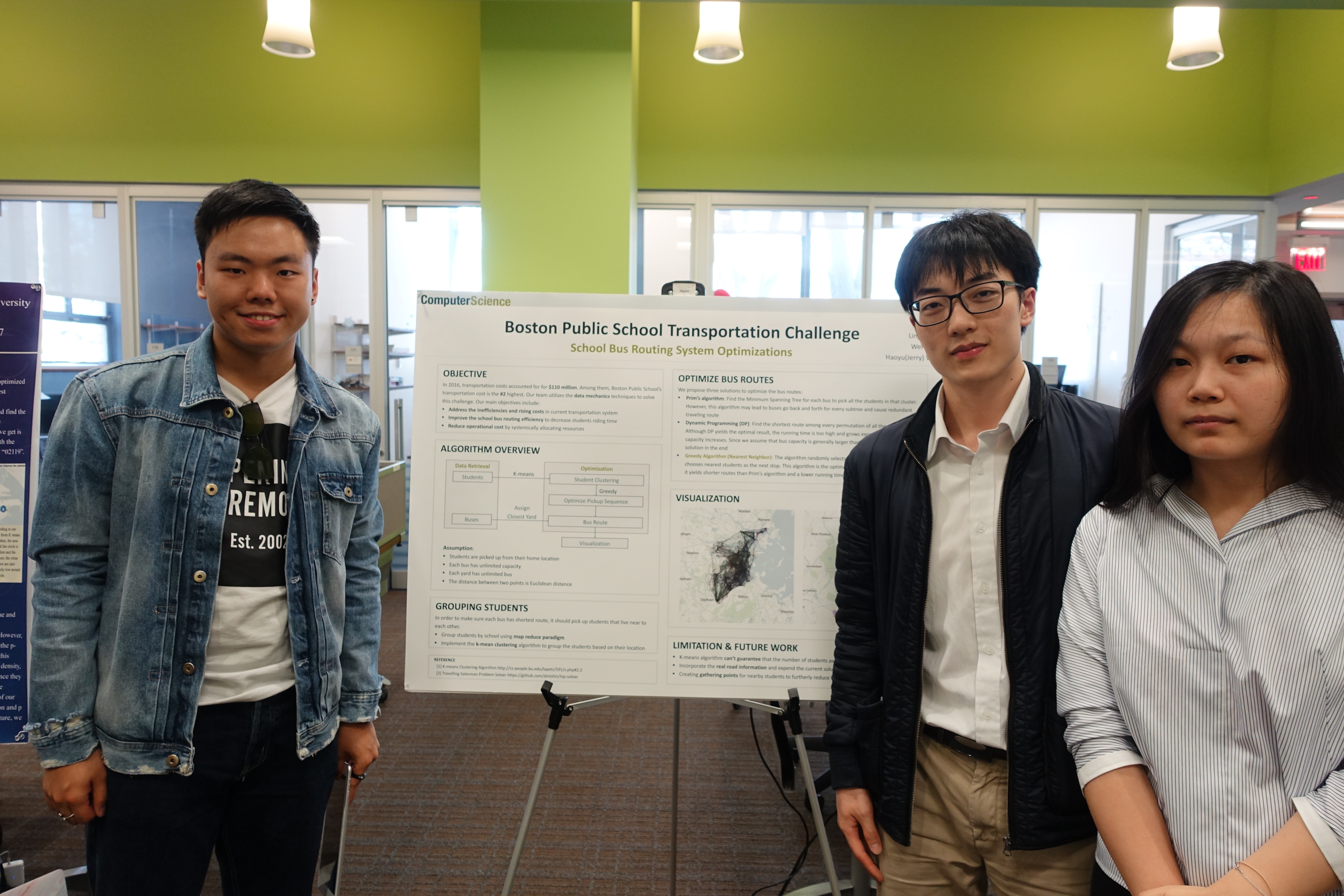Data Mechanics Student Poster Session Solves Urban Challenges
Hosted by the Hariri Institute, in collaboration with the Smart-city Cloud-based Open Platform and Ecosystem (SCOPE) project, students in CS Lecturer Andrei Lapets’ Data Mechanics class had the opportunity to share the results of their semester-long work, which focused on real-life challenges faced by Boston residents and organizations. Over 50 students presented posters that answered questions such as how to find the best area to live, what is the correlation between food accessibility and obesity, and what steps to take regarding rising sea levels.
Minteng Xie, Yue Lei, and Zhi Dou found a solution to quantify the best living areas in Boston, based on individual preferences. Using algorithms they created to analyze data from the City of Boston, they were able to use average rent costs, transportation accessibility, food establishments and crime records to create a system that allows users to find their preferred living area. They created a platform in which each user rates his or her personal preferences, and their algorithm then uses this information to provide a list of the top 5 recommended neighborhoods for that user.
“It seems like a simple idea, but many don’t know where they want to live,” Xie said of the project. “We used data from the City’s open platform that helped us find incidents in crime, food establishment licenses, and the number of MBTA stops in order to create the algorithm.” The platform the trio created is even interactive, allowing users to track the crime rates in their recommended neighborhood back to 2013. The City’s open data platform has contributed tremendously in these projects, giving students access to basic data that allowed them to build their projects. Additional data sets were provided by the Massachusetts Department of Transportation, Boston Public Schools, and a variety of other sources.

Lingyi Gu, Wei Wei, and Jerry Wu tackled the City’s bussing problem. Earlier in April, the City of Boston announced its Bus Transportation Challenge, which called on students and professionals alike to find a solution for how to get the city’s 30,000 students to their schools on time while reducing costs. Currently, the City spends over $100 million on student transportation, making it one of the most expensive bussing systems in the country.
Students expressed their excitement and interest in working on challenges of urban-living, which gave them a chance to see how public agencies and private organizations might work on these issues at a higher level. Students noted the experiential learning component to the class, recognizing how their ability to address real-world problems and bring computational solutions to life will greatly contribute to their professional aspirations post-graduation.